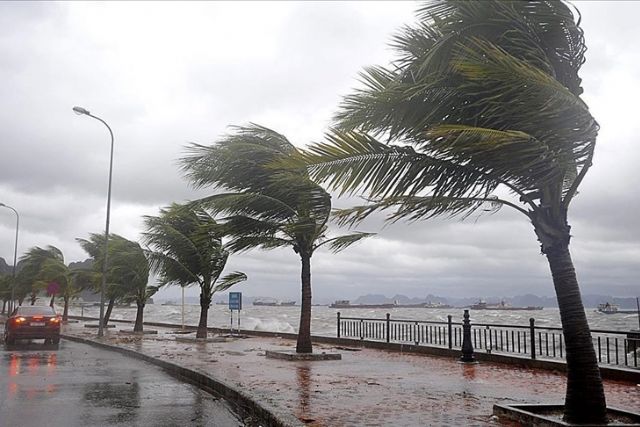‘Turkey, Egypt normalize relations for mutual interest’
On eve of Egypt’s Liberation Day on Friday, expert recounts progress in relations with Turkey and its salutary effects on Palestinian cause

ANKARA
As Egypt celebrates its Liberation Day on Friday, an expert says the country's relations with Turkey were on the path of normalization after more than seven years of estrangement.
Speaking to Anadolu Agency, Ismail Numan Telci, the deputy director at the Ankara-based Center for Middle Eastern Studies (ORSAM), said the recent move by the two countries was aimed at finding a middle ground based on common interests.
Over recently, the two countries have exchanged positive signals on establishing contacts and the possibility of talks to demarcate their maritime borders in the Eastern Mediterranean.
On June 1, Turkish President Recep Tayyip Erdogan had said that Turkey and Egypt have a vast area of cooperation from the Eastern Mediterranean to Libya. He said that Ankara is determined to restore relations with Cairo.
Turkish and Egyptian delegations held two days of political consultations in Cairo from May 5-6, the Egyptian Foreign Ministry said.
Turkish Deputy Foreign Minister Sedat Onal and his Egyptian counterpart Hamdi Sanad Loza led their respective delegations, said Ahmed Hafez, the Egyptian Foreign Ministry spokesman.
Exploratory talks between Turkey and Egypt were "frank and in-depth," according to a joint press release between the two sides.
Telci said that Turkey's close relations with the legitimate government in Libya may have been a consideration for President Abdel Fattah al-Sisi's administration to opt for the rapprochement as a stable environment in Libya will have economic benefits for both countries.
In February, an UN-led Libya forum elected Mohammed al-Menfi as head of the presidential council and Abdulhamid Dbeibeh as prime minister.
The expert said the exploratory talks between Ankara and Cairo may stimulate economic relations and offer significant advantages to Egypt and Turkey in mutual trade relations.
“The mobility in bilateral relations may also have important repercussions in the field of tourism as the peoples of the two countries have strong cultural and historical ties”, he said.
Reconciliation may unveil new collaborations
According to Telci, recent developments may also help the activities of the institutions such as Yunus Emre Institute and Turkey's state-run aid agency TIKA, and similar organizations of Egypt to work in each other's countries, which may unveil a new collaboration in the field.
The expert further said that two countries may start negotiations on a possible maritime jurisdiction deal in the Eastern Mediterranean to bring serious gains to both sides.
“With the envisaged agreement, Turkey can secure its eastern borders in the Eastern Mediterranean and keep Egypt onside, a country which has a long coastline in the Mediterranean”, he said.
Telci exuded confidence that the scenario would completely nullify the projects of the Greek Cypriot administration and Greece, which have formed an anti-Turkey front in the Eastern Mediterranean.
In an interview in early May, Turkish Vice President Fuat Oktay praised Egypt for respecting Turkey's exclusive economic zone (EEZ) while demarcating its maritime boundary lines recently in contrast to Greece disputing Turkey's territory in the Eastern Mediterranean.
According to Oktay, the lines drawn by Egypt in its pursuit of new natural gas and oil reserves in the Mediterranean region respect Turkey's exclusive economic zone (EEZ) territory established through a maritime jurisdiction deal reached with Libya.
Rapprochement to help Palestinian cause
Telci said the rapprochement between the two countries may also help the Palestinian issue to maintain its important place on the international agenda.
The Palestinian resistance group Hamas has also supported Turkey's reconciliation with Egypt.
Telci, however, said it may take some time for the two sides to fully instill trust in each other, while relations between the peoples of the two countries may develop in parallel with the increasing momentum of the economic and commercial ties.





